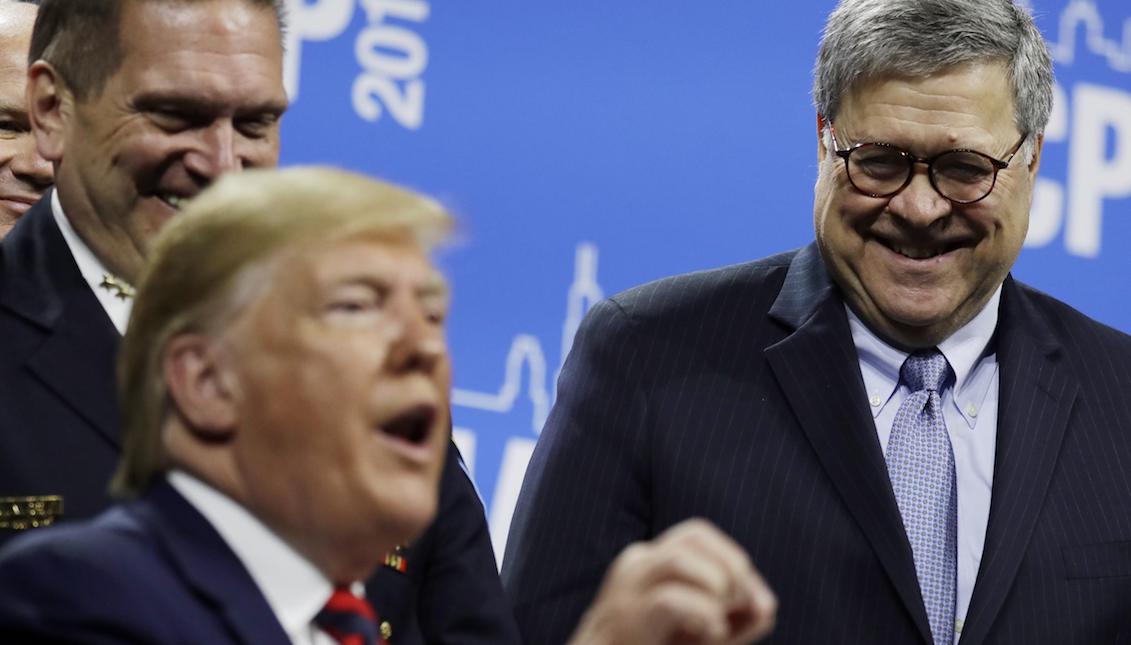
The problem with William Barr
How the Attorney General's decision to fire Manhattan's top federal prosecutor, Geoffrey Berman, could cost him a subpoena from the House of Representatives.
What do you do when the Justice Department insists on covering up the president for any wrongdoing?
For the House Judiciary Committee, the answer is simple: The Attorney General is investigated.
Committee Chairman Representative Jerrold Nadler (D-N.Y.) and House Speaker Nancy Pelosi decided over the weekend to prepare a subpoena for Attorney General William Barr's testimony on July 2, and they said they would "be prepared" in case Barr refused to testify, Politico reported.
While the committee chairman had been reluctant to subpoena the attorney general and encourage new “impeachment-like” moves in the House, Barr's decision to fire Manhattan's top federal prosecutor, Geoffrey Berman, who has been overseeing multiple investigations related to Trump's business and associates over the past several months, was the last straw.
While Barr's latest move can be interpreted as a way to shield the president, especially during an election year, for the House Judiciary Committee the Attorney General's positions tend more toward obstructionism.
Even if we overlook Barr's decision to terminate the Mueller investigation into the alleged collusion between the Trump campaign and Moscow during the 2016 elections, the Attorney General's latest interventions on behalf of the president leave little room for lucubration.
In February 2020, Trump congratulated Barr for "taking over" the sentencing of his close associate Roger Stone, who thanks to the Attorney General obtained a lighter sentence, causing the prosecutors in the case to resign in protest.
RELATED CONTENT
Days later, more than 2,000 former Justice Department employees signed a letter calling for the Attorney General's resignation, while the Federal Judges Association of more than 1,000 federal jurists called an emergency meeting to discuss their concerns about Trump's and Justice Department officials' involvement in politically sensitive cases.
As if that weren't enough, just days later Barr declared that he would review the case of Michael Flynn, a former Trump national security advisor who was found guilty of lying to the FBI about his contacts with a Russian ambassador. Barr chose St. Louis federal prosecutor Jeffrey Jensen to conduct the review, and Jensen finally granted the president's wish and recommended that the charges be dropped.
Now, with the controversial move to remove the Attorney General who is investigating the president, Barr again agrees with those who insisted that the Judiciary Committee should investigate him.
On Wednesday, two career prosecutors who worked on the Stone case will testify before the Judiciary Committee to discuss their experience working with Barr as attorney general, Rolling Stone reported.
They are Jonathan Kravis, a federal prosecutor who worked on the Stone case and who quit his job entirely after top Justice Department officials tried to help Stone, inflicting "lasting damage to the institution," he wrote in an opinion column.
“What makes autocrats autocrats is that they believe they alone possess all power in a society and that no one and no institution can properly check that power,” says Ian Bassin, a former associate White House counsel under President Obama who now runs Protect Democracy, a nonpartisan group dedicated to resisting authoritarianism in the U.S. “If courts try to check his power, he calls them ‘so-called judges.’ If inspectors general try to check his power, he removes them. If the Department of Justice tries to investigate him, he politicizes it and fires U.S. attorneys.”











LEAVE A COMMENT: